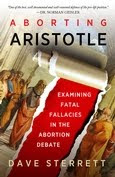 Here are this week's recommended apologetics links. Enjoy.
Here are this week's recommended apologetics links. Enjoy.
KINDLE DEALS:
• Alive: A Cold-Case Approach to the Resurrection - 1.99
• A To Z With C. S. Lewis by Louis A. Markos - 0.99
• Did Jesus Rise From the Dead? by WL Craig - 1.99
• History, Law and Christianity: The Evidence for a Historical Jesus - FREE
• How to Argue like Jesus - 0.99
• When the Lights Go Down: Movie Review as Christian Practice - 3.03
WEEKLY LINKS:
• Is the Universe Hostile to Life?
• Resources to Help You Respond to Mormonism
• Was the message of the New Testament corrupted?
• Sunday Quote: Ancient Apologetics and the Disinterest of the Modern Age
• J. Warner Wallace: practical advice on becoming an effective one-dollar apologist
Apologetics 315 is a registered 501(c)(3) non-profit. Would you support us?
• Alive: A Cold-Case Approach to the Resurrection - 1.99
• A To Z With C. S. Lewis by Louis A. Markos - 0.99
• Did Jesus Rise From the Dead? by WL Craig - 1.99
• History, Law and Christianity: The Evidence for a Historical Jesus - FREE
• How to Argue like Jesus - 0.99
• When the Lights Go Down: Movie Review as Christian Practice - 3.03
• Is the Universe Hostile to Life?
• Resources to Help You Respond to Mormonism
• Was the message of the New Testament corrupted?
• Sunday Quote: Ancient Apologetics and the Disinterest of the Modern Age
• J. Warner Wallace: practical advice on becoming an effective one-dollar apologist
Apologetics 315 is a registered 501(c)(3) non-profit. Would you support us?
• Shopping via Amazon? If you use this link, a bit of your purchase goes to fund Apologetics 315. Thanks for those of you using the link, as it helps Ap315.
Canada here. UK here.
• Would you like to help with interview transcription? If so, contact Ap315 here.
Get these sorts of links and more by following on Twitter.Canada here. UK here.
• Would you like to help with interview transcription? If so, contact Ap315 here.
For daily post links, please follow on Facebook.










